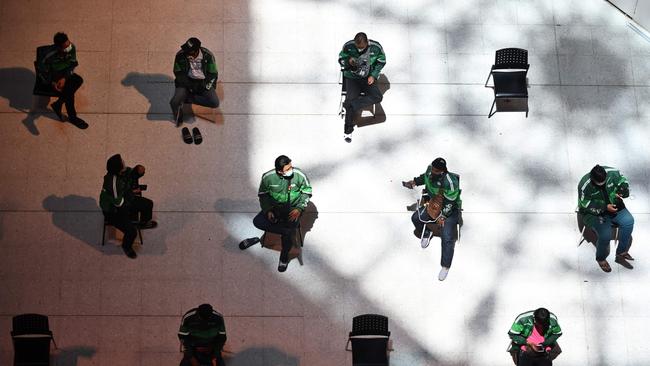
The namaste greeting – two palms pressed together and held in front of your chest – works. There’s something so humbling and gracious about it as opposed to the thrust of the western handshake. Yet I can’t stop touching the kids. Have always caved myself in the bliss of stroking them, from the skin-to-skin moment of their birth to the placebo beauty of “Mummy will kiss it better” working its magic on the crying child to now stealing a caress on the ducking head of a giggling teen; I’m a mum and they will be touched, it’s water to my thirst.
Perhaps it’s because I don’t recall my mother touching me at all as a child, except to drag the hairbrush hard and hurting through my hair in frustration that I wasn’t pretty or clean or neat enough, like other girls in my class. Yet I remember my father caressing my earlobe during longed-for, rare custody drives and visits. Touch often speaks more potently than words, and it carries an imprint of memory that can last a lifetime. The tenderness of my father’s absent-minded gesture conveyed everything I needed to know about our charged, changed circumstances. That he loved me still; that I filled his heart no matter how removed I was from him now; and that this would never change. This small, secret touch was my anchor as a child; my soul would fling open at the thought of it. Still does.
Touch speaks a language beyond words, and with great economy. It unlocks, loosens, wakens, repairs. It plays a vital role in healing. Laboratory tests such as MRIs have detected changes in the patterns of brain activity during the moment of touching. Certain endorphins are released that help to fight stress hormones, resulting in a feeling of relaxation and peace pluming through you. A healing caress can unlock the light within.
But there’s nothing worse than the unwanted touch, and the MeToo movement has rewritten the rules around it. Touch can be an insult, a power play, a threat. You never want the dishonesty of the unwanted gesture – it has to be mindful of boundaries, and always requires consent. Inappropriate male touching for aeons has been about privilege, ownership and entitlement. Until a few years ago a lot of women wouldn’t think anything of it or call it out, we were so inured to it; it was just another annoyance of being female in a public space.
Yet some men – US presidential hopeful Joe Biden included – have needed to be re-educated about touching in public. Biden had a frankly creepy habit of coming up behind women and massaging their faces, stroking their shoulders and smelling their hair. Sorry guys, but unwanted touching like that is deeply entitled, annoying and predatory. If the connection is one-sided then please go away. Younger males get this instinctively, older ones often do not. It’s about pushing into the personal space of someone you perceive as having less power, and MeToo, thankfully, has put a stop to it.
We are all on a steep learning curve about touching, all rethinking our public and private gestures. Yet it’s hard when touch comes so naturally and so often. This new pandemic-containment regime is resulting in a reset for all of us. No touching, of almost anyone, but I ache for the salve of it.




In this plague world touch is pariahed and we’re all the poorer for it, but we’re living in jittery times so handshakes and hugs have to be sacrificed. But I’m a toucher and this new regime doesn’t come naturally, it’s hard to break the habit. We’re all learning to hesitate at the handshake that comes instinctively – now it’s the awkward grasp when it becomes too late to stop it, or the more reflective nah, perhaps not, and a mutual backing off. We will learn, we will recalibrate, but what to put in its place?